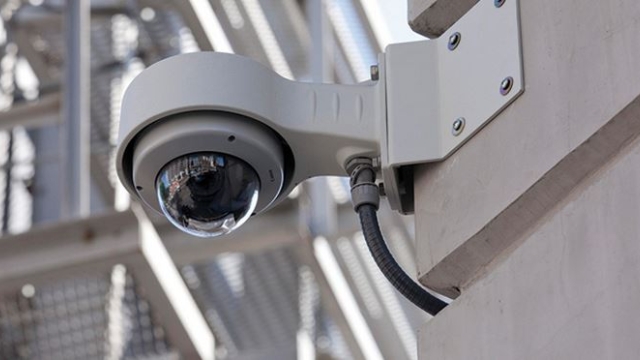
In a world where security concerns are ever-present, one technology has risen to the forefront, keeping a vigilant watch over our communities – security cameras. These unblinking eyes are increasingly becoming a ubiquitous feature of our modern landscape, offering reassurance, deterrence, and a powerful tool in the fight against crime. With their ability to monitor public spaces, private properties, and even our own homes, security cameras have revolutionized how we approach safety and surveillance. In this article, we will delve into the power and potential of these unassuming devices, uncovering the ways in which they have become an essential component of our security infrastructure. Join us as we explore the multifaceted world of security cameras, and discover their incredible impact in safeguarding our society.
The Benefits of Security Cameras
- Enhanced Surveillance:
Security cameras provide an invaluable tool for monitoring and surveillance. With their unblinking eyes, they offer a constant watchful presence, allowing for real-time monitoring of both public and private spaces. This heightened surveillance can deter criminal activities, provide evidence for investigations, and help maintain a safer environment for everyone.
- Crime Prevention:
Effective security camera systems act as a deterrent to potential criminals. By simply knowing that they are being watched, individuals may think twice before engaging in illegal activities. The presence of security cameras can greatly reduce the likelihood of crimes such as theft, vandalism, and trespassing, creating a safer atmosphere for both individuals and properties.
- Increased Awareness and Responsiveness:
Security cameras provide a means to monitor various situations and respond promptly to any emerging threats or incidents. By capturing and recording footage, security personnel and law enforcement agencies can gain valuable insights, identify patterns, and prevent potential security breaches. This heightened awareness allows for quick response times and potentially life-saving interventions.
Privacy Concerns and Ethical Considerations
Security cameras have undeniably become a widespread tool in contemporary society, aiding in the protection and safety of various premises. However, their ubiquitous presence raises pressing concerns regarding privacy and ethical considerations.
First and foremost, one major concern revolves around the potential invasion of privacy that security cameras pose. As these cameras constantly monitor public and private spaces, there is a valid worry that individuals may feel their every move is being watched and recorded. This raises important questions about the right to privacy and personal freedom in public spaces, as well as the potential for abuse or misuse of surveillance footage.
Another ethical consideration relates to the appropriate usage of security camera footage. While there is no doubt that surveillance footage can be valuable in identifying and apprehending criminals, there is also a risk of this data being obtained and utilized for nefarious purposes. It is crucial to establish clear guidelines and legal frameworks to govern access to and usage of security camera footage, ensuring it is solely employed for legitimate and lawful purposes.
Additionally, the deployment of security cameras can inadvertently perpetuate existing biases and societal inequalities. If not implemented thoughtfully, these cameras may unfairly target marginalized communities or reinforce discriminatory practices. It is vital to continually reassess and address any potential biases to ensure that security cameras serve as unbiased tools for public safety rather than instruments of discrimination.
In conclusion, as security cameras continue to proliferate, it is imperative that privacy concerns and ethical considerations remain at the forefront of discussions surrounding their implementation. Striking a delicate balance between public safety and individual privacy is essential, as is safeguarding against potential abuses and biases related to surveillance footage. A thoughtful and conscientious approach is necessary to harness the power and potential of security cameras while preserving the rights and dignity of individuals.
Future Innovations in Security Camera Technology
Armed Security Guard Services Dallas
- Enhanced Video Analytics
One of the most promising developments in security camera technology is the integration of advanced video analytics. These analytics algorithms are continuously evolving and gaining the ability to analyze video footage in real-time, providing invaluable insights to security professionals. By leveraging artificial intelligence and machine learning techniques, security cameras equipped with enhanced video analytics can detect suspicious activities, identify objects or individuals of interest, and even predict potential security threats before they occur.
- Facial Recognition and Biometric Authentication
Another exciting innovation in security camera technology is the implementation of facial recognition and biometric authentication capabilities. With this advancement, security cameras can accurately identify individuals based on their unique facial features or other biometric data, such as fingerprints or iris patterns. This technology has wide-ranging applications, from enhancing access control systems to helping law enforcement agencies identify and apprehend criminals. However, the ethical considerations surrounding the use of facial recognition technology continue to be a point of debate.
- Integration with IoT and Smart City Infrastructure
The future of security camera technology lies in its integration with the Internet of Things (IoT) and smart city infrastructure. As cities become more connected and sensors are embedded throughout urban areas, security cameras can leverage this network to share data and collaborate with other devices. For example, security cameras can communicate with streetlights, parking meters, or even autonomous vehicles, creating a comprehensive surveillance and security ecosystem. This integration of technologies has the potential to revolutionize law enforcement and public safety measures, making our cities safer and more efficient.
In conclusion, the future of security camera technology is incredibly promising. Innovations in video analytics, facial recognition, and the integration with IoT and smart city infrastructure are set to transform the capabilities of security cameras. While these advancements bring significant advantages in the realm of surveillance and security, careful considerations must be made to address the ethical concerns surrounding privacy and individual rights. Nonetheless, as technology continues to evolve, the unblinking eyes of security cameras will continue to make our world a safer place.
